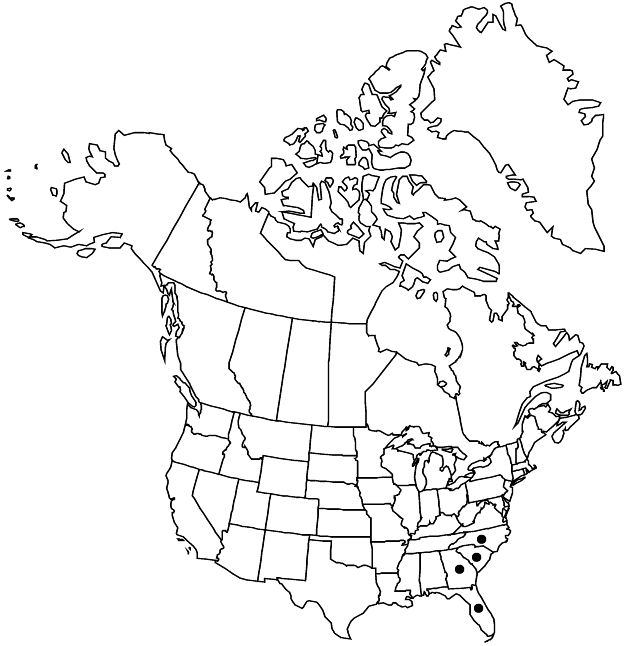Euphorbia curtisii
Fl. South. U.S., 401. 1860.
Herbs, perennial, with spreading rootstock. Stems erect or ascending, branched, solitary or few, previous years dead stems not persistent, 20–40 cm, usually glabrous, rarely strigose to sericeous at nodes. Leaves alternate; stipules to 0.1 mm; petiole to (0–) 1–2 mm, glabrous or strigose to sericeous; blade usually linear, occasionally elliptic, rarely ovate, proximal often greatly reduced and often scalelike, 10–30 × 1.5–6 mm, base cuneate, margins entire, occasionally sparsely ciliate, apex rounded or broadly acute, abaxial surface glabrous or sparsely strigose to sericeous, adaxial surface glabrous; venation obscure, only midvein conspicuous. Cyathia in terminal pleiochasia (fertile axillary branches occasionally present); peduncle 6.5–17 mm, filiform, glabrous. Involucre campanulate, 1–1.2 × 1.3–1.5 (–1.7) mm, glabrous or strigose to sericeous on distal 1/2; glands 5, green, reniform, 0.3 × 0.6 mm; appendages white, semicircular, 0.3–0.4 × 0.6–0.8 mm, entire. Staminate flowers 20–25. Pistillate flowers: ovary glabrous or sparsely strigose to sericeous; styles 0.6–1.1 mm, 2-fid at apex to 1/2 length. Capsules globose, 2.5–3.2 × 4.3–5.1 mm, glabrous or sparsely strigose to sericeous; columella 2.4–3.1 mm. Seeds usually gray to black, occasionally brown, ovoid-globose, 2.2 × 1.8 mm, smooth; caruncle absent.
Phenology: Flowering and fruiting early spring–summer.
Habitat: Xeric to dry oak or oak-pine scrub of sand hills, pine-oak woodlands, pine-oak savannas.
Elevation: 0–200 m.
Distribution

Fla., Ga., N.C., S.C.
Discussion
Euphorbia curtisii is found in the Gulf and Atlantic coastal plains.
Selected References
None.
Lower Taxa
"connate" is not a number. "distinct" is not a number."connate" is not a number. "distinct" is not a number.